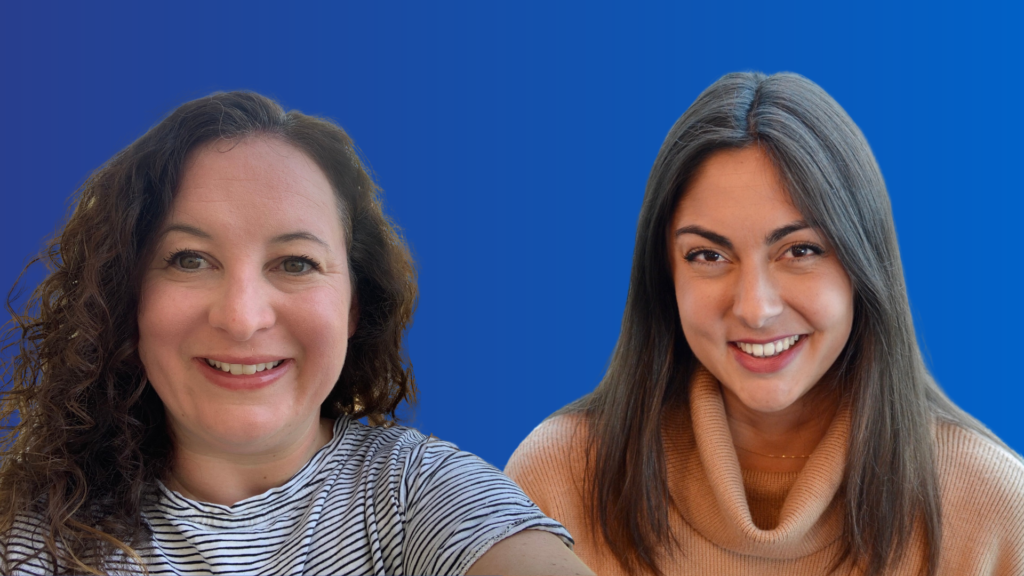Jennifer Diana and Chloe Petrich on why we should Embrace Equity
How broadening the D&I conversation can have a huge impact

Jennifer Diana joined Standard Chartered in 2015 and is Senior Legal Counsel on the Disputes and Government Investigations team. Chloe Petrich joined the Bank in 2014 and is a Director in the Project and Export Finance team. Together, they are Co-Chairs of the Gender Engagement Network (GEN) in the Americas. Here they discuss the 2023 International Women’s Day theme, their experience at the Women’s Forum in Paris, and how that will shape the future of the network.
Tell us about the GEN network…
Jennifer: Chloe and I are co-chairs of the Gender Engagement Network (GEN) for the Americas. It’s an Employee Resource Group (ERG) that seeks to provide programming, build allyship and contribute to the D&I agenda by focusing on ways the Bank and employees can work to further the development, promotion, and retention of our female colleagues.
You were both at the Women’s Global Forum in Paris last year. Can you tell us about your experience?
Chloe: The conference brought people together from a variety of countries and industries, and looked at different issues through a gender lens, such as climate, health, business, and technology.
There were many takeaways. The first one was looking at D&I in the context of Environmental, Social & Governance (ESG). It sounds obvious but I don’t think that we do it enough. People understand the value of sustainability, so if we can frame D&I into the ‘Social’ of ESG, the potential impact is huge.
The second one was a discussion which incorporated research that showed that generally, women are savers and don’t know how to invest their money as well as men. Part of it is just the financial literacy not being there, and part if it is society making it such. If you look at a female magazine, you’ll see ‘how to lose 10lbs in 10 days’ on the front page. If you look at the equivalent male magazine, you’ll see the ‘top 10 investments in 2023’. This in turn contributes to the gender gap. So how can we make sure that we educate men and women in the same way when it comes to investing?
Jennifer: One unforgettable moment for me occurred during a panel featuring Francois Villeroy de Galhau, Governor of the Banque de France, who shared why he values female input and how gender equality can enhance economic productivity and improve outcomes for the next generation. As he explained, women’s tendency to think about and act for the collective makes them particularly effective problem solvers and adept at resolving conflict. Yet, so often, people associate agentic behaviors—such as self-promotion and assertiveness—with effective leaders. The Governor validated what so many of us have been saying about the value women leaders for decades. And it was powerful to hear this from someone at his level of seniority (not to mention a Bank client).
This year’s theme for International Women’s Day is Embrace Equity – what does the theme mean to you?
Jennifer: For me, the conversation this whole time needed to be about equity because that’s when meaningful and lasting change will begin to happen. As IWD has explained—equal opportunities simply aren’t enough. People start from different places, which people often fail to acknowledge. To celebrate IWD this year, GEN Americas is putting together an internal panel about intersectionality and allyship, including what each of us can do without our own sphere of influence to create equity for all.
In addition to IWD, March is Women’s History Month. How does the network mark both events?
Chloe: I think it’s a good excuse to celebrate women throughout the month! Women’s History Month is a time to reflect on what we’ve accomplished, to recognise the amazing women in our history for what they have done and how they’ve paved the way for us. It’s also a time to think about the work that lies ahead. Most importantly, it’s another opportunity for dialogue.
What are the plans for GEN in 2023?
Jennifer: I think a lot of our priorities for this year were informed to a degree by our experience at the Global Women’s Forum, so you can expect to see some programming around financial literacy, equity, and working collaboratively with other ERGs to highlight intersectionality and lift participation. And while we have great support for the network and our initiatives, how do we engage with the people who have not yet embraced equity or the D&I value proposition? How do we engage with those who are not attending our events or reading our communications? That is something that we are thinking about and wanting to tackle. Three of the Bank’s International Graduates have joined our Network, and we really want to hear and learn from them to make sure that we are addressing issues that are important to the next generation of women.
Chloe: I would also like for GEN to engage more with clients on these issues and have these conversations at a broader level. We are based in NY where many of our peers are, so how can we engage in meaningful dialogue, with other banks, and with our clients?